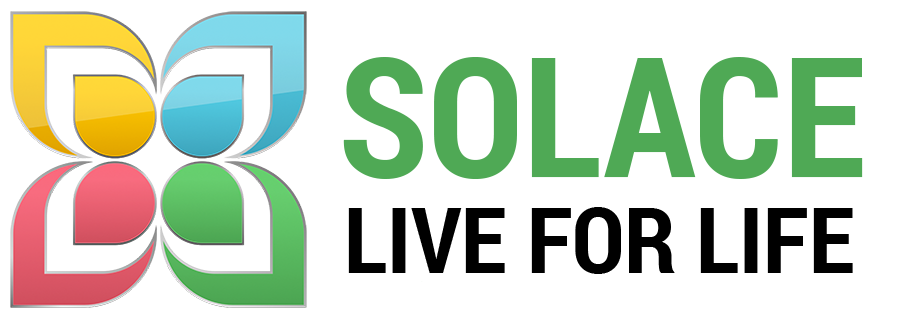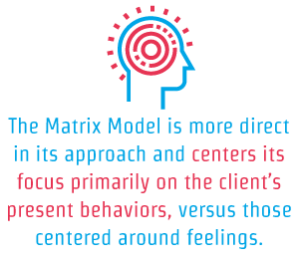What is the Matrix Model of Drug Treatment?
The Matrix model is an integrative model for treating substance abuse and addiction. It was developed in the 1980s by researchers and Dr. Richard A. Rawson, Associate Director of the UCLA Integrated Substance Abuse Programs (ISAP) in the Department of Psychiatry and Biobehavioral Science, UCLA School of Medicine. Dr. Richard A. Rawson is also a Solace Asia’s Clinical Advisory Board member. The Matrix model offers clients comprehensive addiction treatment, covering all aspects of their needs. At Solace Asia, we embrace this treatment approach, providing a one-stop solution for individuals seeking help with addiction.
What Are The Key Components of the Matrix Model And Its Treatment In Solace Asia?
Individual Therapy:
Clients engage in one-on-one sessions with a therapist to address issues related to substance abuse, such as triggers, cravings, coping strategies, and personal goals.
At Solace Asia, individual therapy is at the core of the matrix model. We conduct one-on-one counseling sessions multiple times a week, serving as a cornerstone for our approach. These sessions provide a platform for our clients to express any concerns they may have, initiating the treatment process. Our therapists employ motivational interviewing and cognitive-behavioral therapy (CBT) techniques during these sessions.
Family Education:
Involving family members in the treatment process helps create a supportive environment for solid recovery.
At Solace Asia, the family program is conducted to educate family members about addiction, communication skills, and ways to support their loved ones in their journey to sobriety.
Group Therapy:
Group sessions provide opportunities for clients to share experiences, receive support from peers, and learn from each other. These sessions often incorporate cognitive-behavioral techniques and skills training.
At Solace Asia, individuals in recovery will address their interpersonal challenges within the peer group setting. The therapist acts as the group moderator and facilitator, guiding discussions. Clients gain insights into their social strengths and weaknesses while acquiring essential social skills to enhance communication.
Relapse Prevention:
Clients learn strategies to identify and cope with triggers, manage cravings, and prevent relapse. This often involves developing personalized relapse prevention plans and practicing coping skills in various situations.
At Solace Asia, we conduct a one-hour session on relapse prevention at the end of each week. Here, our clients learn that relapse isn't arbitrary but rather follows discernible patterns that can be identified early in the recovery journey. They also acquire strategies to prevent relapse and understand that relying solely on willpower isn't sufficient to combat addiction.
Motivational Interviewing:
At Solace Asia, this therapeutic technique utilized by our counselors aims to guide clients away from detrimental behaviors and towards positive habits. Through this approach, clients can attain specific goals and prevent relapse into active addiction.
Cognitive Behavioral Therapy (CBT):
At Solace Asia, our clinicians employ and instruct clients in CBT to help them connect with their emotions and understand the link between their thoughts, feelings, and actions. This process facilitates the transformation of unhelpful thoughts and beliefs into more constructive ones, challenging distorted thinking patterns that lead to distressing emotions.
12-Step Facilitated Recovery Program and Meetings:
Here in Solace Asia, our clinicians are proficient in the 12-step program and guide clients through its steps as part of treatment. Additionally, we conduct in-house meetings modeled after 12-step fellowships such as Narcotics Anonymous (NA) and Alcoholics Anonymous (AA).
Medical Detoxification and Treatment:
At Solace Asia, upon admission, clients may undergo medical detoxification if necessary. We collaborate with our affiliated hospital and medical team, ensuring medications are administered according to physicians' instructions throughout the treatment duration. For further details on the detox program, please refer to our website.
Urinalysis Monitoring:
Regular drug testing helps clients stay accountable and provides objective feedback on their progress toward sobriety.
At Solace Asia, we conduct random urine tests to monitor our clients for any signs of relapse. This monitoring and testing are vital to confirm their dedication to the program. Additionally, drug urine testing helps maintain a drug-free environment within the center, free from external drug influences.
How Long Does The Treatment Take?
The Matrix Model is known for its structured, time-limited approach, typically lasting around 16 weeks. It integrates elements from various therapeutic approaches, including cognitive-behavioral therapy, motivational interviewing, and 12-step facilitation, to provide a holistic and effective treatment for substance abuse and addiction.
What Are The Benefits of the Matrix Model in Drug Treatment?
The Matrix Model offers numerous advantages in drug treatment:
- Integrates diverse psychological orientations and therapeutic styles
- Adaptable and comprehensive approach to addiction treatment
- Structured as an intensive outpatient program (IOP), allowing patients to continue living at home
- Time-sensitive approach accommodates patient's needs
- Helps patients develop essential life skills and strategies for post-treatment
- Reduces the risk of relapse by equipping patients with coping mechanisms
- Integrates family education and involvement, enhancing support and understanding for the patient
What Is The Therapist's Role in "The Matrix Model of Treatment:
In the Matrix Model of Treatment at Solace Asia, the therapist plays a pivotal role in facilitating the recovery process. Their responsibilities include:
- Expertise in CBT, motivational interviewing, and the physiological aspects of addiction.
- Exhibit flexibility in facilitating group sessions involving peers or family members, as well as coordinating with other therapists and groups to benefit the client.
- Encouragement of attendance and active participation in the 12-step meeting and program is a priority.
- Engage clients in utilizing CBT techniques to challenge unhelpful beliefs, fostering an understanding of the connection between thoughts, feelings, and behaviors.
- Provide consistent feedback and assessment when necessary, while also establishing clear expectations regarding clients' recovery goals and issues.
What Are the Principles of The Matrix Model:
Here in Solace Asia, the principles of The Matrix Model encompass several key tenets that guide its approach to addiction treatment:
- Emphasizes a comprehensive, one-stop approach to treating drug addiction, with the counselor at the core.
- Prioritizes establishing a strong bond between counselor and client, alongside a structured program with clearly defined expectations and goals.
- Provides education on understanding the nature of substance abuse and its consequences.
- Adopts multiple treatment approaches based on clients' individual needs, ranging from CBT to motivational interviewing, demonstrating flexibility in treatment modalities.
- Promotes positive behaviors through a rewards system while addressing and mitigating negative or unhelpful character traits.
- Involves the family in addiction awareness and education.
- Encourages participation in self-help or support groups such as 12-step fellowships.
- Conducts regular urine testing to monitor substance use.
Seek Treatment With Us At Solace Asia:
Solace Asia is a drug and alcohol rehab center located in Malaysian Borneo that utilizes the Matrix Model of addiction treatment. If you're seeking comprehensive addiction treatment in one place, we're here for you or your loved one. Contact us now for more information and assistance. We're committed to helping you through your journey to recovery.







